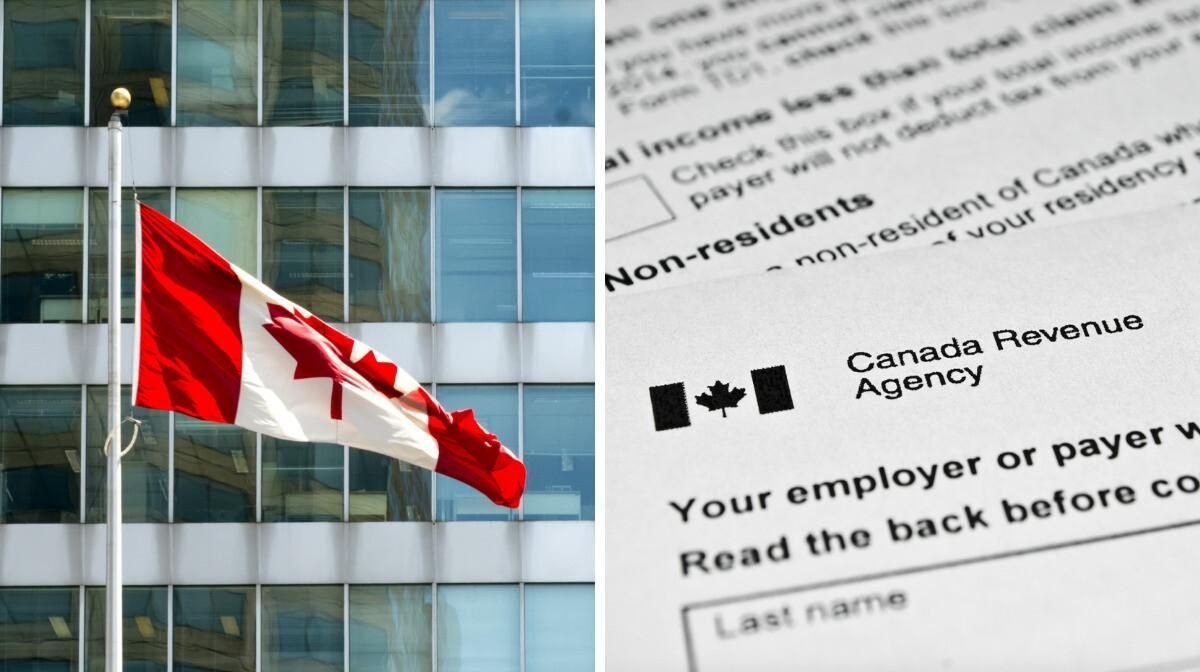[ad_1]
“9 Major Tax Changes to Look Out For in 2022 According to the CRA”
Get ready, taxpayers! The Canadian tax return deadline is fast approaching, and that means it’s time to sit down and do some math.
But before you get started, the Canada Revenue Agency (CRA) has shared a number of tax changes to be aware of for 2022 — including new tax brackets, changes to the disability tax credit, increases in the tax credit for first-time home buyers, and more.
Before the May 1 tax deadline, here are the changes you should be aware of before completing and filing your 2022 tax returns:
How the benefits of COVID-19 will affect your taxes
If you received any COVID-19 benefits in the past year, it is important that this is reflected on your 2022 tax return as these payments are taxable.
This applies to COVID-19 benefit payments from federal, provincial, or territorial governments, including the Canada Recovery Benefit (CRB), Canada Recovery Caregiving Benefit (CRCB), Canada Recovery Sickness Benefit (CRSB), and Canada Worker Lockdown Benefit ( CWLB).
If you received any of these benefits in the past year, you should have received a T4A receipt with detailed instructions on how to include the payments on your tax return.
If you cannot locate the T4A receipt, it can be found on the CRA’s My Account portal.
In some instances, payments from the above benefits may be exempt from tax, including under Section 87 of the Indian Act.
find out more
The Air Quality Improvement Tax Credit
If you are self-employed or a member of a partnership, you may be eligible for this refundable tax credit on your 2022 tax return.
If you are eligible, the Air Quality Improvement Tax Credit provides a refundable credit equal to 25% of your total ventilation costs (up to $10,000 for a single location) if you have paid for ventilation or workplace air quality improvements.
The tax credit — which is new this tax year — applies to expenses incurred or incurred from September 1, 2021 through December 31, 2022.
find out more
Disability Tax Allowance
\u201cPsst! Eligibility requirements for the Disability Tax Credit (DTC) have been expanded!\n\nIf you submitted an application and were denied on or after January 1, 2021 through June 23, 2022 for intellectual functioning or life support therapy, we will process your application test .
— Canadian Revenue Agency (@Canada Revenue Agency)
1668108012
Another relatively recent change to note at tax time this year is a change in the eligibility requirements for life support therapy under the Disability Tax Credit (DTC).
For 2021 and later tax years, the CRA says individuals diagnosed with type 1 diabetes meet eligibility criteria.
This means that some of the costs associated with type 1 diabetes are now offset through the DTC, reducing the amount of income tax an individual may have to pay.
find out more
Tax Credit for First-Time Home Buyers
There has been a fairly significant change to the amount used to calculate the First Home Buyer Tax Credit (HBTC), which is useful when filing your 2022 tax return.
For the 2022 tax year, the amount has doubled to $10,000, giving eligible homebuyers a tax credit of up to $1,500.
Previously, eligible first-time home buyers could claim a non-refundable tax credit of up to $750 – because the value of the HBTC is calculated by multiplying $5,000 by the lowest personal income tax rate (15% in 2022).
find out more
Tax credit for barrier-free housing
\u201c\ud83c\udfe0 Need to renovate your home to make it more accessible to someone who lives with you?\n\nFind out if you are eligible for the Accessible Home Tax Credit. You can get details here \u27a1\ufe0f
— Canadian Revenue Agency (@Canada Revenue Agency)
1643207102
The annual spending limit on the Accessible Housing Tax Credit has been doubled to $20,000, allowing for a tax credit of up to $3,000.
This non-refundable tax credit allows homeowners to claim renovation or remodeling expenses when changes are made to a property to make it safer or more functional for eligible individuals with accessibility needs.
Prior to 2022, the HATC’s annual spending limit was $10,000, which would provide a tax credit of up to $1,500.
find out more
Homework costs
In the wake of the COVID-19 pandemic, changes have been made to how individuals can claim home office expenses at tax time.
The temporary flat rate method now allows eligible employees to claim $2 for each day they worked from home, up to a maximum of $500.
If your expenses are more expensive or more complex, it’s still possible to use the detailed method.
In 2022, eligible workers will be able to claim certain home office expenses — such as phone bills, supplies, and furniture — on their personal income tax returns.
find out more
Medical Expenses Tax Credit
The list of eligible medical expenses that can be claimed against your income has recently been expanded to include fertility clinic or surrogacy fees.
The CRA confirmed that amounts paid to Canadian fertility clinics and donor banks, surrogates, donors and more can now be considered eligible medical expenses.
find out more
Tax class 2022
To account for inflation and other factors, the federal tax brackets for 2022 have been increased according to a 2.4% indexation:
- $0 to $50,197 income – 15%
- More than $50,197 to $100,392 – 20.5%
- More than $100,392 to $155,625 – 26%
- More than $155,625 to $221,708 – 29%
- More than $221,708 – 33%
Canada’s 2022 tax deadline
\u201eDon’t let the fear of not filing your taxes haunt you. Get all the information you need to prepare: #FridayThe13th\u201d
— Canadian Revenue Agency (@Canada Revenue Agency)
1673619613
Something that may surprise Canadians this year is that Canada’s tax deadline is not April 30, as it normally is.
Instead, the 2022 tax deadline is May 1, 2023. Because April 30 of this year falls on a Sunday, your return is considered filed on time if it is received by the CRA or postmarked on or before the following Monday (May 1). becomes.
find out more
Source: www.narcity.com
[ad_2]
Don’t miss interesting posts on Famousbio










